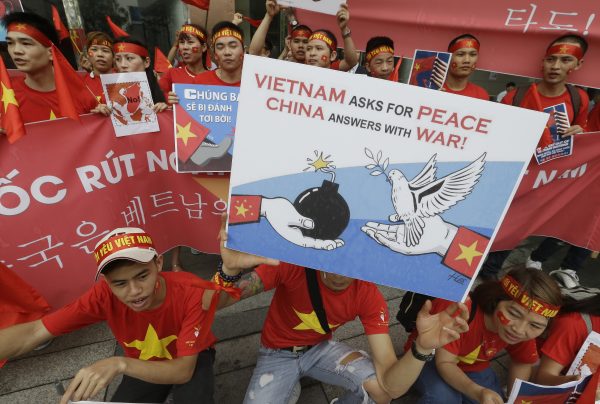
- The territorial difference between China and Vietnam lies primarily in their conflicting claims over the Paracel and Spratly Islands in the South China Sea.
- The reluctance of Western countries to engage economically with China further exacerbates the situation, leading it to seek alternative partners like Vietnam.
- With China pivoting towards Vietnam, it is an opportunity for economic partners like India, the United States, and Japan alienated by China to further strengthen their ties with Vietnam.
The Indo-Pacific has emerged as the new focal point of geopolitics. With numerous countries vying for influence in the region, tensions over power and access have escalated, leading to multiple theatres of instability. One such area of contention lies between Vietnam and China. China’s economic success, fueled by significant Western investment, has propelled its rise. However, recent challenges, both domestically and internationally, have surfaced.
Domestically, China faces issues of declining demand and signs of economic saturation, resulting in a drop in GDP. Internationally, Western countries, feeling threatened by China’s competition, have reduced investment, prompting them to seek alternatives such as Vietnam, Indonesia, and India, whose economic environments resemble China’s.
The Chinese, just as they have with many other countries in the South China Sea region and beyond, have pursued belligerent policies towards Vietnam. One of the reasons for this aggressive stance is China’s assertive foreign policy under President Xi Jinping. This policy aims to establish China as the central power in the world, seeking to expand its territories at the expense of other nations, disregarding their territorial rights.
Territorial Differences between China and Vietnam
The territorial difference between China and Vietnam lies primarily in their conflicting claims over the Paracel and Spratly Islands in the South China Sea. Both nations assert sovereignty over these islands, known as the Hoang Sa and Trong Sa islands in Vietnam, leading to disputes over maritime boundaries and resource rights. While Vietnam claims a historical and legal basis for its ownership dating back to at least the 17th century, China argues that it was the first to discover, name, and develop these islands and continues to exercise sovereign jurisdiction over them. These competing claims have led to diplomatic tensions and occasional maritime confrontations between the two countries.
This approach has led to territorial disputes with neighbouring countries, most of which share direct land boundaries with China. These disputes highlight China’s disregard for international norms and the rights of its neighbours. Chinese pressure on Vietnam over maritime policies exemplifies this aggressive foreign policy stance.
However, President Xi Jinping’s assertiveness has backfired, proving detrimental to Chinese foreign relations. The reluctance of Western countries to engage economically with China further exacerbates the situation, leading them to seek alternative partners like Vietnam. With China pivoting towards Vietnam, it is an opportunity for economic partners like India, the United States, and Japan alienated by China to further strengthen their ties with Vietnam.
The common objective among these countries is to uphold the rule of law in the South China Sea region and counterbalance China’s assertiveness. By excluding these countries and pursuing aggressive policies, China undermines its foreign policy objectives.
Current Status of the Relationship
This shift in strategy became evident, especially after the 14th CCP meeting in 2022, where President Xi Jinping publicly emphasized the importance of maintaining good relations and engaging in diplomacy with neighbouring countries like Vietnam.
There has been continuous diplomatic engagement observed between the two countries in the last year. This was marked by the visit of President Xi to Vietnam in December 2023, followed by ministerial-level engagements. Additionally, yesterday, the National Assembly Chairman of Vietnam visited China, where he met with President Xi. There are also reports indicating that both countries aim to enhance economic cooperation and establish direct railway connectivity between Vietnam and China.
This trend suggests that both countries are willing to set aside differences, especially with China showing an understanding of its past actions regarding Vietnam. However, Vietnam is not hesitant to cooperate with China economically. Still, it also maintains concerns about its military and is unwilling to compromise in that regard.
Aayush Pal is a freelance writer on contemporary geopolitical developments. The views expressed in his work are entirely his own.
